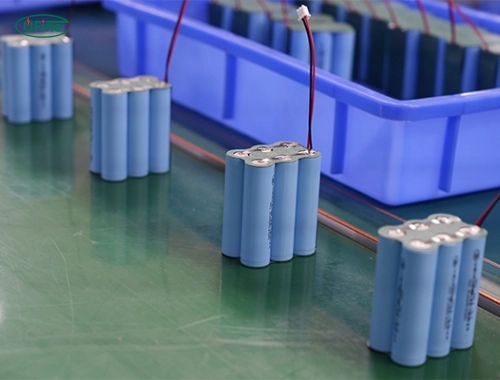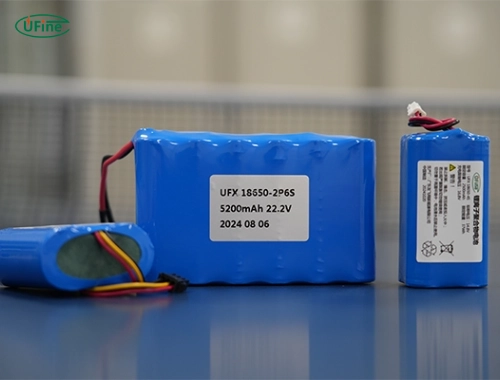Do lithium batteries need a special charger? This question has become increasingly relevant as lithium batteries are ubiquitous in our everyday devices, from smartphones and laptops to electric vehicles. Understanding the charging requirements of these batteries is essential for ensuring their longevity and safety. In this article, we will delve into the specifics of lithium battery technology, the necessity for specialized chargers, and best practices for charging these batteries effectively.
Part 1. What are lithium batteries?
Lithium batteries are rechargeable and utilize lithium ions as a primary component in electrochemical reactions. They are renowned for their high energy density, lightweight design, and ability to withstand numerous charge cycles without significant degradation.
Key Characteristics of Lithium Batteries:
- High Energy Density: Lithium batteries can store more energy in a smaller volume than traditional lead-acid batteries. This characteristic makes them ideal for portable electronics and electric vehicles, where space and weight are critical factors.
- Low Self-Discharge Rate: One of the advantages of lithium batteries is their ability to retain charge longer when not in use. This means that devices can remain powered for extended periods without frequent recharging.
- Long Cycle Life: Lithium batteries typically endure hundreds to thousands of charge cycles before their capacity diminishes significantly. This longevity contributes to their popularity in consumer electronics and renewable energy storage applications.
Part 2. How do lithium batteries work?
Lithium batteries transfer lithium ions between two electrodes: the anode and the cathode. Lithium ions move from the positive electrode (cathode) to the negative electrode (anode) when charging. During discharging, this process reverses, allowing the battery to provide power.
Components of a Lithium Battery:
- Anode: The anode is usually made from graphite, a host material for lithium ions during charging. Graphite’s structure allows for efficient ion intercalation, enabling quick charging and discharging.
- Cathode: The cathode typically comprises lithium metal oxide, which releases lithium ions during discharging. The choice of materials for the cathode can significantly affect the battery’s overall performance, including its voltage capacity and thermal stability.
- Electrolyte: The electrolyte is a crucial component that facilitates the movement of lithium ions between the anode and cathode. It usually consists of a lithium salt dissolved in a solvent, which allows for ionic conductivity while preventing electronic conductivity to ensure safety.
Part 3. Do lithium batteries need a special charger?
Lithium batteries require specific chargers designed to manage their unique charging needs effectively. The chemistry involved in lithium-ion technology necessitates precise control over voltage and current levels during the charging process.
Why Special Chargers Are Necessary:
- Voltage Regulation: Lithium batteries have strict voltage limits that must not be exceeded during charging. Overcharging can lead to overheating and potential battery failure. Specialized chargers are equipped with circuitry that accurately monitors and regulates voltage output to prevent these issues.
- Charging Profile: Lithium batteries typically follow a two-stage charging process known as constant current (CC) followed by constant voltage (CV). In the CC phase, the charger delivers a steady current until the battery reaches its maximum voltage. Then, it switches to CV mode, which maintains that voltage while gradually reducing current until the battery is fully charged. This nuanced approach helps maximize efficiency and prolong battery life.
- Temperature Management: Many specialized chargers also incorporate temperature sensors that monitor battery heat during charging. If temperatures exceed safe limits, these chargers can adjust their output or halt charging to prevent damage.
Part 4. What happens if you use the wrong charger?
An incompatible charger can severely affect the battery and the device it powers. Understanding these risks is vital for anyone who relies on lithium batteries.
Potential Risks of Using Incorrect Chargers:
- Overheating: An incompatible charger may deliver too much current or voltage, causing the battery to overheat. High temperatures can lead to thermal runaway—a condition where increased heat causes further reactions within the battery, potentially resulting in fires or explosions.
- Reduced Lifespan: Incorrect charging practices can accelerate battery degradation over time. Frequent overcharging or using chargers that do not adhere to proper voltage specifications can diminish battery capacity significantly faster than normal wear and tear.
- Safety Hazards: In extreme cases, using an unsuitable charger can result in catastrophic failures such as fires or explosions due to chemical reactions within the battery cells. This risk underscores the importance of using chargers specifically designed for lithium batteries.
Part 5. Types of chargers for lithium batteries
Several types of chargers are designed specifically for lithium batteries. Understanding these options can help you choose the one that best suits your needs while ensuring safe operation.
Common Types of Lithium Battery Chargers:
- Standard Chargers: These basic chargers provide a constant current until the battery reaches full charge. While they are effective for many applications, they may lack advanced features such as temperature monitoring or adaptive charging profiles.
- Smart Chargers: Smart chargers are equipped with microprocessors that adjust their output based on real-time data from the charged battery. By communicating with the battery management system (BMS), they can optimize charging speed while preventing overheating and overcharging.
- Fast Chargers: Designed for quick charging capabilities, fast chargers can significantly reduce charging times compared to standard options. However, they must be used cautiously; if not properly managed, they can generate excessive heat that may compromise battery health over time.
Part 6. Best practices for charging lithium batteries
To ensure safety and maximize the lifespan of your lithium batteries, follow these best practices:
- Use the Recommended Charger: Always use a charger specified by the manufacturer for your device or battery type. This ensures compatibility with voltage and current requirements.
- Avoid Extreme Temperatures: Charge your devices in environments with moderate temperatures (typically between 0°C and 45°C). Charging in extreme heat or cold can negatively impact performance and safety.
- Monitor Charging Time: While many modern devices have built-in protections against overcharging, it is advisable to leave your device plugged in only when necessary after it reaches full charge.
How to Charge a Lithium-ion Battery?
Part 7. FAQs
-
Do all lithium batteries require special chargers?
Yes, all lithium batteries require chargers designed explicitly for their chemistry to ensure safe and efficient charging. -
Can I use my phone charger for other devices with lithium batteries?
While many devices share similar charging ports (like USB-C), it’s essential to use chargers recommended by manufacturers to avoid damage or safety issues. -
What should I do if my battery gets hot while charging?
If your battery overheats during charging, disconnect it immediately and allow it to cool down before charging again. If overheating persists, consult a professional or replace the battery. -
How can I tell if my charger is compatible with my lithium battery?
Check the specifications on both the charger and battery packaging or manuals. Look for voltage ratings and compatibility notes from the manufacturer. -
Is it safe to charge lithium batteries overnight?
While many modern chargers have built-in protections against overcharging, monitoring charging sessions is generally safer when possible.
Related Tags:
More Articles

How to Choose the Best Floor Scrubber Battery for Commercial Cleaning?
Selecting the ideal floor scrubber battery ensures a long runtime, rapid charging, and minimal maintenance for efficient commercial cleaning operations.
Battery for Blower vs Battery for Leaf Vacuum: Which One Should You Choose?
Battery for blower vs leaf vacuum—learn the key differences in power, fit, and runtime to choose the right battery for your outdoor tool needs.
How to Choose the Right Battery for Blower?
Choosing the right blower battery? Consider voltage, capacity, chemistry & usage. This guide helps match the best battery for peak performance.
How to Choose the Best Insulated Battery Box for Lithium Batteries?
Choosing the Best Insulated Battery Box for Lithium Batteries? Discover key factors such as size, material, and safety for optimal protection and performance.
7 Critical Elements on a Lithium Battery Shipping Label
What must be on a lithium battery shipping label? Learn 7 key elements to ensure safety, legal compliance, and correct handling across all transport modes.





